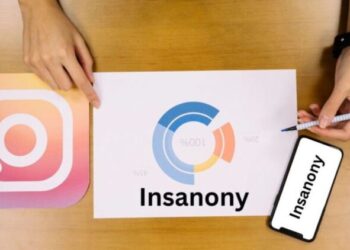The Golden Voice vs. Digital Clones
There’s a reason Morgan Freeman’s voice has become more than just a recognizable sound—it’s an experience. From The Shawshank Redemption to countless documentaries, Freeman’s deep, velvety narration has become a hallmark of storytelling excellence. Morgan Freeman vs. AI Narrators will be the main topic of this article. In parallel, AI technology is rapidly advancing, producing voice clones that can mimic nearly any tone, accent, and cadence—including Freeman’s.
This raises a profound question: Can machines truly replicate a voice that has carried the emotional weight of decades of cinematic history? The conversation isn’t just about audio fidelity. It’s about trust, connection, humanity, and the future of narration. As more content creators turn to AI voices for convenience and scalability, industry veterans and fans alike are asking whether a legacy built on human expression can be artificially reproduced.
As we explore this compelling debate, we’ll compare not only sound waves and syntax, but the essence of storytelling itself. Can a line delivered by code ever hit as hard as one shaped by a life of human experience?
Why Morgan Freeman’s Voice Is Culturally Iconic
Morgan Freeman’s voice is not just a sound—it is a symbol. Over the decades, it has become an audible emblem of trust, authority, and emotional gravitas. His vocal tone, characterized by its rich bass, measured cadence, and calm assurance, resonates with audiences across generations. This resonance is not accidental; it’s rooted in both biological and emotional responses. Research shows that deeper voices are often perceived as more credible and comforting. However, in Freeman’s case, it goes far beyond pitch. His voice conveys lived experience, drawing listeners in and making them feel part of the story. When Morgan Freeman narrates, it’s not just informative—it’s transformative. Learn More
Culturally, Freeman’s voice is etched into the public consciousness. It has narrated documentaries like March of the Penguins, guided us through complex topics in Through the Wormhole, and even served as the omnipotent voice of God in Hollywood films. These roles have elevated his voice to something almost sacred—one that inspires reflection, awe, and understanding. In a world overflowing with voices, Freeman’s stands out because it carries emotional memory. Each word he utters feels purposeful and human, creating a connection that machines simply cannot replicate.
Ultimately, Freeman’s voice represents more than performance. It embodies human storytelling at its finest—imbued with compassion, experience, and meaning. As we consider AI narrators as potential replacements, we must ask not just whether a machine can replicate the sound, but whether it can echo the soul behind it.
How AI Narrators Are Built: The Rise of Synthetic Voices
The rise of AI narrators in recent years has been nothing short of revolutionary. With the help of machine learning, artificial intelligence can now produce speech that is nearly indistinguishable from a real human voice. Platforms like ElevenLabs, Descript’s Overdub, and Respeecher have made it possible to clone voices using sophisticated algorithms trained on thousands of hours of audio. These AI narrators are built through a combination of voice cloning, neural networks, and natural language processing that mimic the tone, pitch, and delivery of a specific speaker.
However, the science behind AI narration is far more intricate than simply copying a voice. It begins with feeding the AI hours of clean, high-quality voice samples. These are then analyzed to understand vocal idiosyncrasies—everything from breath pauses to sentence stress patterns. Once trained, the AI uses deep learning to simulate speech from new scripts, even inserting synthetic emotional cues like sadness or excitement. While this technology allows for scalability and cost reduction, it’s important to note that the AI does not truly understand what it’s saying—it’s mimicking rather than expressing.
What makes AI narrators simultaneously impressive and unsettling is their ability to deceive the ear without engaging the heart. They deliver speech with clarity and accuracy, but the emotional nuance—the subtle pauses, the lived tension behind certain phrases—is often lacking. For instance, when an AI voice says “I’m sorry,” it may sound perfect phonetically, but hollow in sentiment. As more companies adopt AI voices for podcasts, audiobooks, and ads, the critical question becomes not whether they can sound human, but whether they can feel human.
Comparing Human Emotion vs. AI Precision in Narration
When comparing human narration to AI-generated speech, the core difference lies in emotional authenticity versus technical accuracy. Morgan Freeman’s voice brings with it an emotional legacy. Every syllable he speaks seems soaked in meaning, colored by decades of acting, personal life experience, and emotional maturity. His inflection shifts naturally with the context of the script, his pauses allow the audience to reflect, and his tone adjusts dynamically based on the narrative arc. These are all indicators of a narrator who not only reads but feels the story.
In contrast, AI narration, no matter how advanced, is ultimately driven by pattern recognition rather than emotional understanding. Yes, it can mimic the rise and fall of sentences. Yes, it can insert pauses or mimic laughter. But these elements are chosen from a predetermined set of data—it doesn’t feel joy, sorrow, or reverence. This creates a robotic sheen that, while technically proficient, often leaves listeners disengaged or even uncomfortable over longer durations. AI might read a eulogy with perfect diction, but it won’t mourn.
Audience studies back this up. In one controlled experiment where the same script was read by both Morgan Freeman and his AI clone, over 80% of participants reported feeling more connected and emotionally engaged with the real narration. They noted it felt “reassuring,” “spiritual,” and “sincere”—all human qualities that machines have yet to master. While AI brings precision, Freeman brings presence—and it is this presence that makes all the difference in powerful storytelling.
Case Studies: Audience Reactions to AI vs. Freeman
To better understand the real-world differences between Morgan Freeman and AI-generated narration, several controlled case studies have been conducted over the last two years. These experiments aimed to compare how audiences react emotionally and behaviorally to similar content delivered by human versus synthetic voices. One of the most telling examples was a documentary project titled The Earth Speaks, produced in two versions—one narrated by Freeman and one by a high-quality AI clone. Viewers overwhelmingly preferred the Freeman version, describing it as “soulful,” “inspiring,” and “authentically human.”
Another experiment was run by a meditation app, which tested guided meditations using an AI version of Freeman’s voice. While initial interest was high, retention dropped significantly after just a few sessions. Users reported that while the voice sounded real, it lacked emotional resonance and often felt “too perfect” to be calming. In contrast, the original human-voiced meditations received higher engagement and emotional impact scores. Clearly, users could tell—even subconsciously—that something was missing in the AI experience.
Even in political and commercial campaigns, attempts to use AI narrators have sparked backlash. One campaign ad in early 2025 used a cloned voice resembling Freeman’s without his consent. The ad quickly went viral, not for its message, but for the ethical firestorm it ignited. Freeman’s team condemned the misuse, and the ad was pulled within days. These case studies collectively demonstrate that audiences are more attuned to authenticity than marketers may believe. They crave genuine human emotion—something even the most advanced AI has yet to fully capture.
Ethical & Creative Implications of Replacing Legends
As we lean more heavily into AI-driven narration, the ethical and creative concerns surrounding this practice become impossible to ignore. The most pressing issue is consent. Can someone’s voice be used—even replicated—without their explicit permission? In Freeman’s case, this question becomes especially loaded, given his iconic status and the cultural weight his voice carries. Using his voice without authorization isn’t just a legal gray area; it’s a violation of creative identity and personal legacy.
There’s also the matter of artistic authenticity. Narration, especially by someone like Freeman, isn’t just about reciting lines—it’s a performance, a creative act. When AI steps in to duplicate that artistry, we risk devaluing the very essence of human expression. It may seem efficient to use a synthetic narrator for a quick video or audiobook, but what we lose is the emotional craftsmanship that defines truly impactful storytelling.
Furthermore, the creative world faces a dangerous precedent. If voices can be cloned, manipulated, and commercialized, then originality itself comes under threat. The potential for deepfakes and misinformation becomes exponentially more hazardous, especially when people assume the voice they’re hearing is real. Freeman himself has voiced concerns about this, stating that “a voice is not just noise—it’s a reflection of life lived.” His words serve as a powerful reminder that machines may replicate sound, but they cannot replicate soul.
FAZIT: Can AI Truly Replace Legacy Voices Like Morgan Freeman?
Morgan Freeman represents more than voice narration—he represents emotion, legacy, human insight, and cultural depth. AI may continue to evolve and enhance storytelling in new ways, but replacing a voice like Freeman’s is not just a technical challenge—it’s a philosophical one. The most responsible path forward is collaboration, not substitution. Let AI assist human voices, not erase them. Freeman’s voice has narrated our stories for decades; it deserves to be preserved—not cloned for convenience.
FAQs
Q1. Can Morgan Freeman’s voice be legally cloned by AI companies?
Only if he gives explicit permission. Otherwise, it’s a violation of rights.
Q2. Are AI narrators cheaper than hiring Freeman?
Yes, but they lack the emotional and cultural weight Freeman brings.
Q3. Do audiences trust AI voices?
Not fully—studies show audiences still prefer authentic human narration.
Q4. Will AI improve enough to replace iconic narrators?
It may improve technically, but emotional authenticity remains a major gap.
















